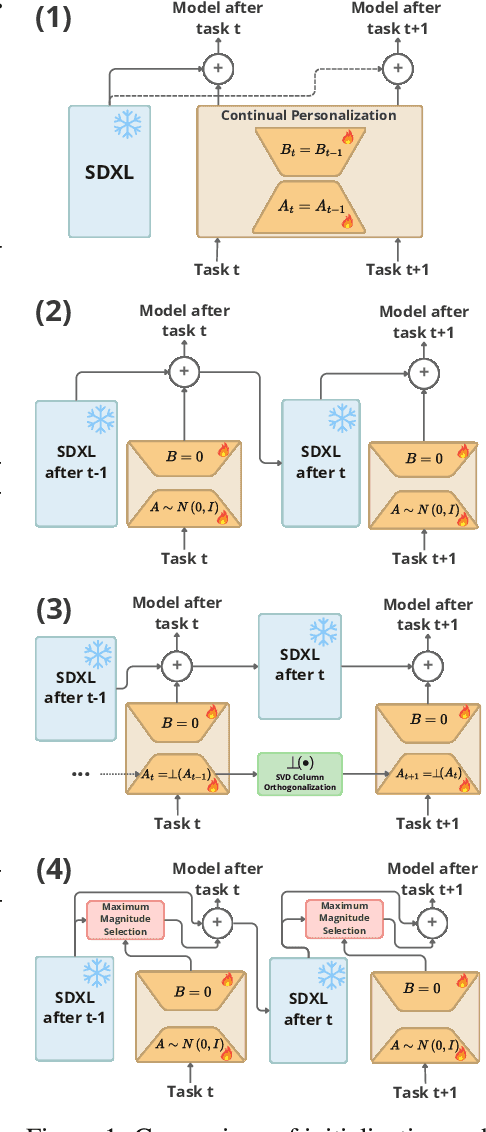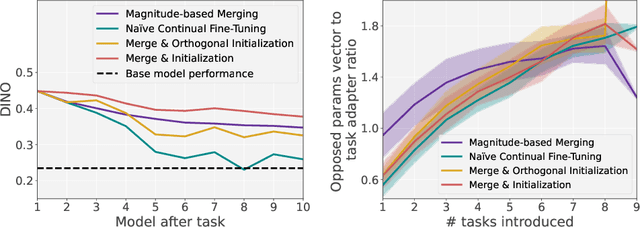Low-Rank Continual Personalization of Diffusion Models
Paper and Code
Oct 07, 2024



Recent personalization methods for diffusion models, such as Dreambooth, allow fine-tuning pre-trained models to generate new concepts. However, applying these techniques across multiple tasks in order to include, e.g., several new objects or styles, leads to mutual interference between their adapters. While recent studies attempt to mitigate this issue by combining trained adapters across tasks after fine-tuning, we adopt a more rigorous regime and investigate the personalization of large diffusion models under a continual learning scenario, where such interference leads to catastrophic forgetting of previous knowledge. To that end, we evaluate the na\"ive continual fine-tuning of customized models and compare this approach with three methods for consecutive adapters' training: sequentially merging new adapters, merging orthogonally initialized adapters, and updating only relevant parameters according to the task. In our experiments, we show that the proposed approaches mitigate forgetting when compared to the na\"ive approach.
 Add to Chrome
Add to Chrome Add to Firefox
Add to Firefox Add to Edge
Add to Edge